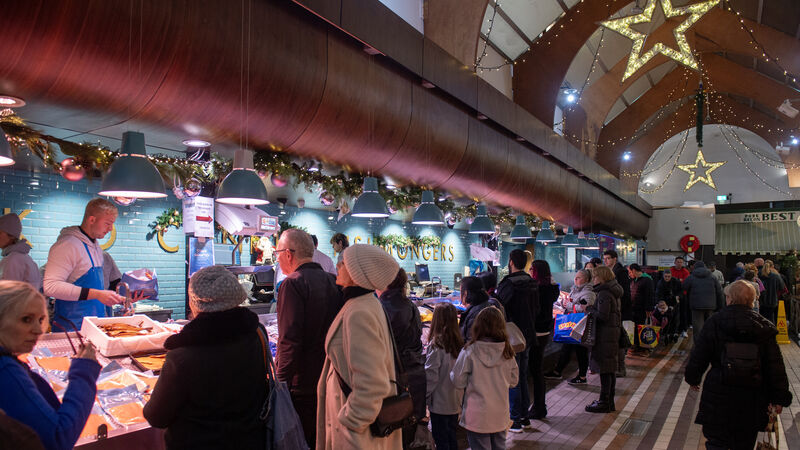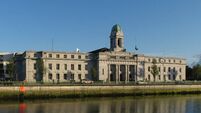Michael Moynihan: Dublin thinks it can better Cork's English Market? Leave them off

People queue for fish at O'Connells in the English Market, Cork. Picture: Dan Linehan
There was an earthquake in the New York area last week, with reverberations felt for miles around.
On Saturday morning there was a similar vibration in the Cork area, an emanation on a low frequency, as comments made far to the north came to light.
















